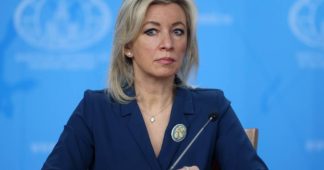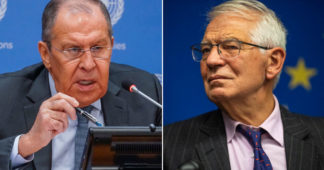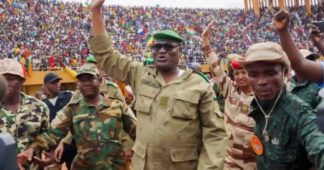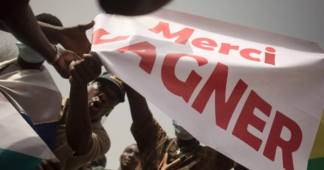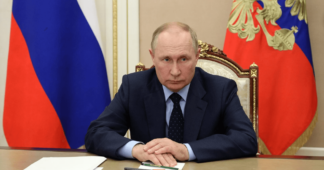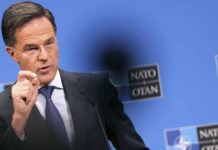Mali, Niger and Burkina Faso have called on the UN to take action against Kyiv over its alleged support for ‘terrorism in Africa’
By José Naranjo
AUG 28, 2024
Ukraine’s alleged support for the Tuareg rebels in their war against the Malian army and its Russian Wagner Group allies (now restructured as the Africa Corps), which came to public light after the battle of Tinzaouaten last July, represents a new twist in the complex conflict in the Sahel, where the hostilities between Moscow and Kyiv are reminiscent of the Cold War. On August 19, the military juntas governing Mali, Niger, and Burkina Faso, which make up the Alliance of Sahel States (AES), asked the United Nations to take measures against Ukraine. In a joint letter addressed to the U.N. Security Council, the foreign ministers of the three countries denounced “the official and unequivocal support of the Ukrainian government for terrorism in Africa, particularly in the Sahel,” which they claim is “a violation of sovereignty and territorial integrity.” In this sense, they demand that the U.N. “take appropriate measures against these subversive acts, which reinforce terrorist groups in Africa.”
On July 27, a convoy composed of Wagner mercenaries and Malian soldiers was attacked on the outskirts of Tinzaouaten, near the Algerian border in the north of Mali, by the Tuareg-majority pro-independence forces of the Permanent Strategic Framework for the Defense of the People of Azawad (CSP-DPA) and jihadists of the Support Group for Islam and Muslims (JNIM). Eighty-four Russian contractors and 47 Malian military personnel were killed in the battle, according to the CSP-DPA. In a subsequent statement, Wagner acknowledged suffering severe losses.
Two days later, Andriy Yusov, the spokesman for the Ukrainian Defense Ministry’s Intelligence Services (GUR), said in an interview with a Ukrainian television broadcaster that the Tuareg rebels “received necessary information, and not only information, which allowed them to carry out a successful military operation against Russian war criminals.” Sources close to the CSP-DPA agree that Ukraine provided intelligence on the movements of the Wagner column, but also, in recent months, contributed to the military training of Tuareg rebels in the use of light drones capable of dropping small explosive charges.
These statements, coupled with the publication on social networks of a video celebrating Wagner’s defeat by the Ukrainian ambassador to Senegal, Yurii Pyvoravov, prompted first Mali and then Niger to break diplomatic relations with Ukraine. The Senegalese government also reminded Kyiv of the duty of discretion and non-interference of its diplomats, and denounced what it termed as the “apology for terrorism” carried out by its ambassador. Even the Economic Community of West African States (Ecowas), which is at odds with the AES countries, issued a communiqué days later to condemn “any outside interference in the region that could constitute a threat to peace and security, as well as any attempt to drag the region into the current geopolitical confrontations.”
The Ukrainian government denies that it supports “international terrorism,” as the AES accuses it of doing, and blames Mali for breaking off relations “without presenting evidence of Ukraine’s involvement” in the battle of Tinzaouaten. However, Kyiv is making notable efforts to counter the rise of Moscow’s influence in Africa. Its foreign minister, Dmytro Kuleba, has already made four tours of the continent and has promised to “liberate Africa from Russia.” Although his words refer to diplomatic efforts, Mali is not the first African country in which Ukraine is confronting Wagner: Ukrainian special forces are fighting in Sudan alongside the regular army against the Rapid Support Forces which, in turn, count Russian mercenaries among its allies.
The presence of Ukrainian forces on Malian soil has not been ascertained, but the words of its intelligence spokesman are clear. The question, not only semantic, is the expression “support for terrorism,” which Kyiv denies. In its communication strategy, the Malian military junta calls both jihadist groups and the Tuareg-majority pro-independence groups in the north of the country “terrorists.” Although these are different groups with different ideologies, rebels and Islamic radicals have collaborated in the past, there is a great porosity between them, and they have a common enemy: the Malian army and its Wagner allies. Although there is officially no common strategy, the fact is that in Tinzaouaten, both the CSP-CDA and JNIM harassed the same military convoy.
Ukraine’s support for a rebel group seeking independence, even though it is fighting a military junta that came to power in a coup, has not gone down well in many African countries and is a setback for Kyiv’s strategy to win the favor of a continent where Russia, the main arms exporter to Africa, has important allies and where some 20 countries have refused to condemn the invasion of Ukraine. “The memory of how the U.S. and the USSR brought the Cold War to Africa in conflicts that became poisoned, such as those in Somalia, Angola, or the Democratic Republic of the Congo, is still very fresh. Ukraine would do well to remember this if it wants to have the African continent on its side,” said an African diplomat.
We remind our readers that publication of articles on our site does not mean that we agree with what is written. Our policy is to publish anything which we consider of interest, so as to assist our readers in forming their opinions. Sometimes we even publish articles with which we totally disagree, since we believe it is important for our readers to be informed on as wide a spectrum of views as possible.
